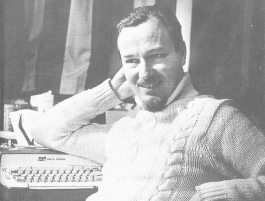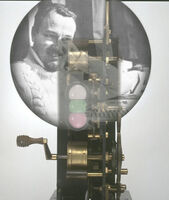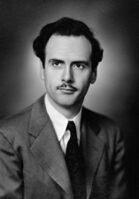John Brunner (nonfiction): Difference between revisions
Jump to navigation
Jump to search
No edit summary |
|||
| Line 7: | Line 7: | ||
<gallery mode="traditional" widths="200px" heights="200px"> | <gallery mode="traditional" widths="200px" heights="200px"> | ||
File:John_Brunner's_Lee_and_Turner_engine.jpg|link=John Brunner|Crime fighter [[John Brunner]] uses [[Gnomon algorithm]] techniques to detect and expose [[crimes against mathematical constants]]. | File:John_Brunner's_Lee_and_Turner_engine.jpg|link=John Brunner|Crime fighter [[John Brunner]] uses [[Gnomon algorithm]] techniques to detect and expose [[crimes against mathematical constants]]. | ||
File:Marshall McLuhan.jpg|link=Marshall McLuhan (nonfiction)|[[Marshall McLuhan (nonfiction)|Marshall McLuhan]] declines | File:Marshall McLuhan.jpg|link=Marshall McLuhan (nonfiction)|[[Marshall McLuhan (nonfiction)|Marshall McLuhan]] declines all invitations to form crime-fighting teams, says he prefers academic life. | ||
</gallery> | </gallery> | ||
Revision as of 23:58, 17 December 2016
John Kilian Houston Brunner (24 September 1934 – 26 August 1995) was a British author of science fiction novels and stories.
His 1968 novel Stand on Zanzibar, about an overpopulated world, won the 1969 Hugo Award for best science fiction novel, and the BSFA award the same year.
In the News
Crime fighter John Brunner uses Gnomon algorithm techniques to detect and expose crimes against mathematical constants.
Marshall McLuhan declines all invitations to form crime-fighting teams, says he prefers academic life.
Fiction cross-reference
Nonfiction cross-reference
External links:
- John Brunner (novelist) @ Wikipedia
- John Brunner @ Wikiquotes


